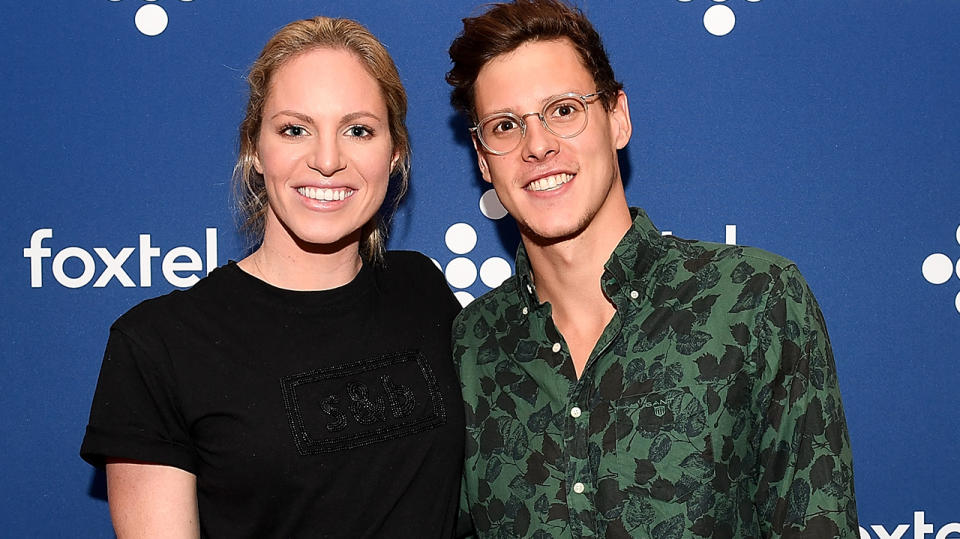Australian Olympic winner Emily Seebohm rebounds from setbacks to emerge stronger

She was an Olympic gold medallist at age 15, and was tipped to become one of Australia’s greatest swimmers.
But while Emily Seebohm’s career has been successful by any standards, the general consensus among the world swimming community is that she could have been more dominant had circumstances not worked against her.
The 26-year-old is gunning for her fourth Olympic Games in two years’ time, and is aiming to continue what has been a fruitful year so far with more gold medals at the Singapore leg of the Fina World Cup series from 15 to 17 November.
And Seebohm was circumspect about her chances of finally winning an individual gold medal in Tokyo, after a medical condition derailed her chances at the 2016 Rio de Janeiro Games, when she should have been at the peak of her powers.
In a phone interview with Yahoo News Singapore on Thursday (18 October), she said, “I don’t feel as if I have anything to prove anymore. The fact that I’ve had 12 straight years in the Australian national team is proof enough that I’m good.
“It’s just about enjoy the rest of the ride, like, really taking it in. Sometimes you can be so focused on the goal that you don’t really enjoy that goal. I think I’ll do better if I enjoy doing it, instead of putting too much pressure on myself.”
Struggles in Rio
After winning her maiden Olympic gold in the 4x100m medley relay at the 2008 Beijing Games, Seebohm added another in the 4x100m freestyle relay in London four years later. But she struggled in Rio 2016, winning only a silver in the medley relay even though she was the reigning world champion in the 100m and 200m backstroke.
Unknown to many, she was diagnosed with endometriosis, a condition whereby tissue similar to the lining of the womb grows in other parts of the abdomen, causing her pain and inflammation. Surgery was required, but she held off the operation until after the Olympics, and had to endure criticism for her poor showing in Rio.
Since the operation, though, Seebohm has regained her winning ways. She retained her 200m backstroke title at the 2017 World Championships in Kazan, Russia. At the 2018 Commonwealth Games in Gold Coast, she snared two golds, a silver and a bronze.
“I’ve recovered pretty well, and nowadays it’s just knowing how much I can push my body, and when I should back off,” she said. “I’m just excited for the rest of the year and finished the year really strongly. I can definitely see myself going to the 2020 Olympics. I would absolutely love that.”
Setback in private life
Yet, even when Seebohm was winning this year, the spotlight fell on her for the wrong reasons as she was involved in a very public break-up with national swimmer Mitch Larkin in July. She even hinted on social media that he had cheated on her, and is writing a tell-all autobiography with a chapter on the messy split.

It could have made for an awkward situation in August’s Pan Pacific Championships in Tokyo, with both of them involved with the Australian team, but she managed to shrug off the media attention to clinch two golds and a silver.
The swim duo will be under the spotlight again come Singapore, but Seebohm insists she will not be affected by Larkin’s presence.
“I try to focus on other things, things I like to do. I like to swim and I love racing, so I’m concentrating on doing those things,” she said. “This year has been massive with the Commonwealth Games, Pan Pac Championships, and emotional issues as well. But I have handled myself really well and I am really proud of what I have achieved this year.”
With so much unpredictability in her life, Seebohm is not looking too far ahead and unwilling to set herself a target for Tokyo 2020 for now. It is also why she does not feel the need for too many pre-race rituals, unlike many other swimmers.
“Sometimes if you can’t do exactly those rituals, you may freak out,” she said. “So the only ritual I have is to put on my swim cap from the back of my head to the front. That’s about it.”
Besides Seebohm and Larkin, other swim stars participating in the Singapore leg of the Fina World Cup include Singapore’s only Olympic gold medallist Joseph Schooling, as well as reigning Olympic champions Kyle Chalmers (Australia), Sarah Sjostrom (Sweden) and Katinka Hosszu (Hungary).
Launched in 1988, the Fina World Cup series is held between August and November each year across several legs around the world, and now has a total prize money of US$2.5 million. The competition is in the short-course format, conducted in a swimming pool that is configured for 25 metres per lap instead of 50 metres for the more common long-course format.
Tickets are available from $30 per day or $60 for three days at www.sportshubtix.sg. Heats will be held at 9.30am and the finals at 6.30pm each day. Visit www.swimming.org.sg for more information.
Related story:
Joseph Schooling to take part in Fina World Cup Singapore leg in November


